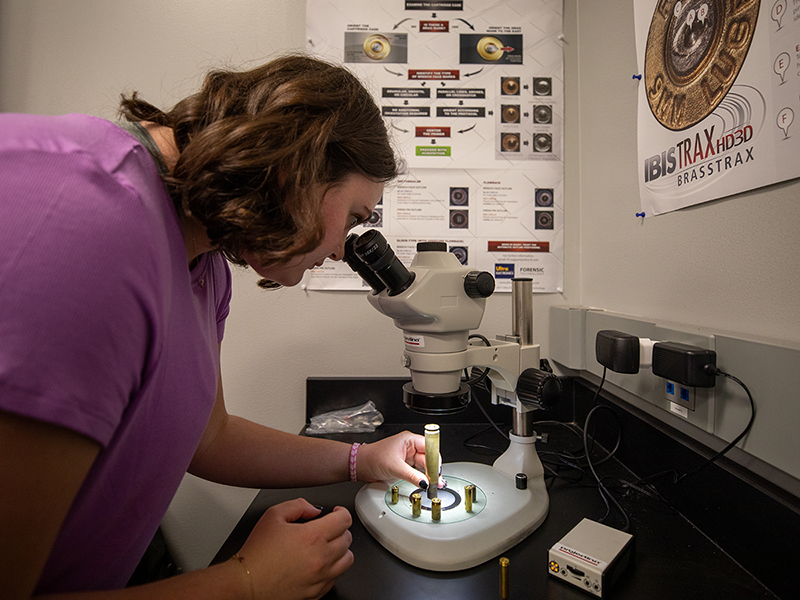Wichita State University is part of a collaborative effort to address the behavioral
health care worker shortage across Kansas. With new funding, mental health care agencies
in south-central Kansas will be better equipped to tackle this critical need.
In a recent report, Kansas was positioned among the states with the poorest access
and availability of mental health treatment, largely due to a shortage of professionals
to care for mental health patients. However, a committed cohort of mental and behavioral
health professionals has successfully secured funding to address this deficiency by
implementing educational initiatives aimed at bolstering the talent pool of behavioral
health professionals within our state.
Backed by $5.7 million in funding from the Kansas Department for Aging and Disability
Services (KDADS), the newly established Kansas Behavioral Health Center of Excellence
(KSBHCoE) is focusing on key areas to enhance opportunities and expand the mental
health workforce. This effort involves strategic collaboration with several local
agencies and institutions, including Wichita State.
- Funding for Wichita State’s physician associate program to include behavioral health training
- Fund internships and clinical support at Wichita State’s Counseling and Psychological Services
- Increase the number of child and adolescent psychiatry residencies and fellowships through the University of Kansas Medical Center (KUMC)
- Create an addiction medicine fellowship through KUMC
- Recruitment and retention of nursing faculty at two-year colleges across Kansas
KSBHCoE was formed in 2023 and includes 11 mental and behavioral health organizations
from across the Southcentral Kansas region.
“The goal is that every Kansan has access to quality, affordable behavioral health
care,” said Dr. Jessica Provines, assistant vice president for wellness and chief
psychologist at Wichita State. “Right now, there are long waits across the state,
and much of our state is suffering from a behavioral health scarcity. Wichita State
wants to be part of the solution.”
Kyle Kessler, executive director of the Association of Community Mental Health Centers
of Kansas and director of KSBHCoE, said Kansas suffered a significant setback in its
mental and behavioral health infrastructure when the Menninger Clinic left the state
in 2003.
The Menninger Clinic, founded in Topeka in 1919, was a prominent mental health institution.
At its peak, Kessler said approximately one-third of the country's mental health experts
had connections to Menninger.
In 2020, COVID-19 swept across the globe and led to heightened isolation, depression
and anxiety. The crisis underscored the urgent need for mental health services and
exposed their scarcity during a time of widespread uncertainty. Since then, there’s
been an uptick in demand for mental health resources and facilities in Kansas.
“We’ve had this re-emphasis on the importance of mental health in the past year or
two,” Kessler said. “These organizations need to be funded appropriately, they need
to grow, and we need to have the workforce to serve those patients.”
Wichita State’s psychology program skews heavily toward counseling and community health
care, and this funding will help broaden its focus into forensic psychology.
“The state of Kansas and the Midwest in general have a severe shortage of psychologists
with training in forensic psychology,” said Dr. C. Brendan Clark, associate professor
and chair of Wichita State’s Department of Psychology. “If we are to meet the demand
generated by the opening of the state hospital, we will need to begin training forensic
psychologists as soon as possible.”
Additionally, WSU’s physician’s associate program will receive funding to develop
specialty training in behavioral health.
By building the talent pool of highly qualified behavioral health care workers, KSBHCoE
aims to cut down the extreme wait times that many Kansans — particularly those in
rural communities— experience when they need mental health care.
“The idea is that this group will help create a model for others to follow and lead
to policy change around behavioral health care and the behavioral health workforce
in Kansas,” Provines said.
About Wichita State University
Wichita State University is Kansas' only urban public research university, enrolling more than 23,000 students between its main campus and WSU Tech, including students from every state in the U.S. and more than 100 countries. Wichita State and WSU Tech are recognized for being student centered and innovation driven.
Located in the largest city in the state with one of the highest concentrations in the United States of jobs involving science, technology, engineering and math (STEM), Wichita State University provides uniquely distinctive and innovative pathways of applied learning, applied research and career opportunities for all of our students.
The Innovation Campus, which is a physical extension of the Wichita State University main campus, is one of the nation’s largest and fastest-growing research/innovation parks, encompassing over 120 acres and is home to a number of global companies and organizations.
Follow Wichita State on social media:





